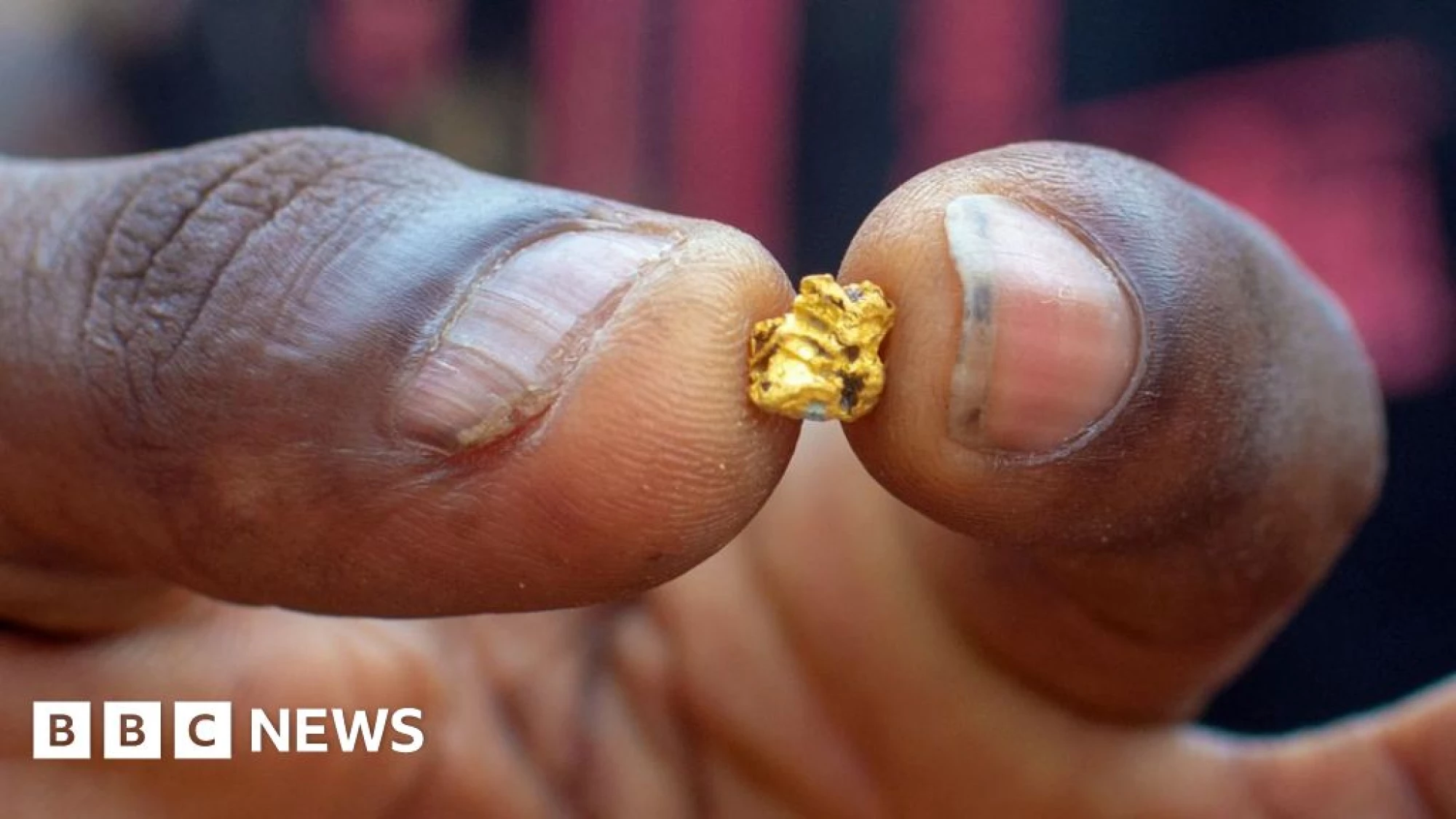'Blood Gold': How it fuels conflict in West Africa's Sahel region

Gold appears to be a lifeline for military juntas and jihadist groups in the Sahel region, analysts say.
Watch LiveBritish Broadcasting CorporationHomeNewsSportBusinessInnovationCultureArtsTravelEarthAudioVideoLiveHomeNewsIsrael-Gaza WarWar in UkraineUS & CanadaUKUK PoliticsEnglandN. IrelandN. Ireland PoliticsScotlandScotland PoliticsWalesWales PoliticsAfricaAsiaChinaIndiaAustraliaEuropeLatin AmericaMiddle EastIn PicturesBBC InDepthBBC VerifySportBusinessExecutive LoungeTechnology of BusinessFuture of BusinessInnovationTechnologyScience & HealthArtificial IntelligenceAI v the MindCultureFilm & TVMusicArt & DesignStyleBooksEntertainment NewsArtsArts in MotionTravelDestinationsAfricaAntarcticaAsiaAustralia and PacificCaribbean & BermudaCentral AmericaEuropeMiddle EastNorth AmericaSouth AmericaWorld’s TableCulture & ExperiencesAdventuresThe SpeciaListEarthNatural WondersWeather & ScienceClimate SolutionsSustainable BusinessGreen LivingAudioPodcastsRadioAudio FAQsVideoLiveLive NewsLive SportHomeNewsSportBusinessInnovationCultureArtsTravelEarthAudioVideoLiveWeatherNewslettersWatch LiveHow 'blood gold' is fuelling conflict in West Africa23 hours agoShareSaveJacob BoswallBBC MonitoringShareSaveGetty ImagesIt has been a good year for gold. A host of turbulent events in the global economy has driven up prices for the glittery commodity to record highs in 2025.
In a world of tariffs and international conflict, gold appeals to investors as one of the few remaining stable assets. Everyone wants a piece of the action, from central banks to large institutions like hedge funds, and retail investors. But few know where their gold comes from, or much about the conflicts it may be fuelling in the countries where it is mined.
For the governments of West Africa's Sahel region, the stakes are even higher. Gold is a lifeline for the military juntas of Burkina Faso, Mali, and Niger, who are beleaguered by jihadist insurgencies, regional isolation, and the ravages of climate change.
"Because gold prices have been at a historic high… the military governments are hoping that they will be able to benefit directly," Beverly Ochieng, a senior researcher at global consultancy firm Control Risks, told the BBC.
Together, the three Sahel states produce around 230 tonnes of gold per year, according to the World Gold Council's estimates, or about $15bn (£11bn) at the current market rate.
https://www.bbc.com/news/articles/c17ww8dv1rwo
Rating: 5